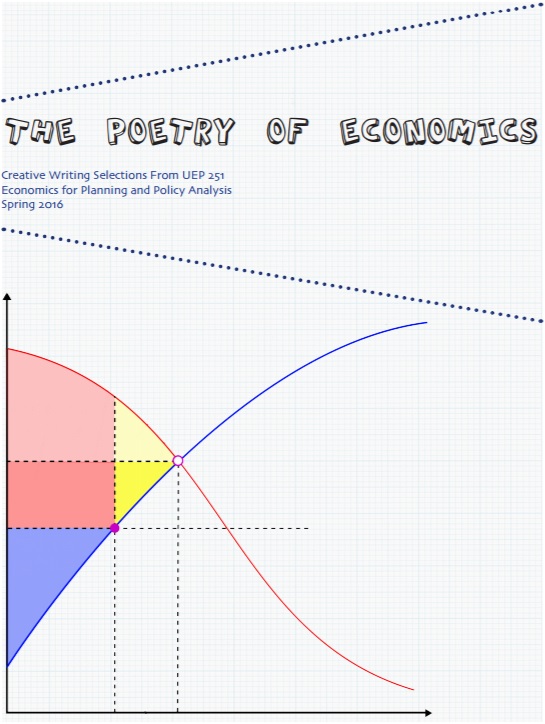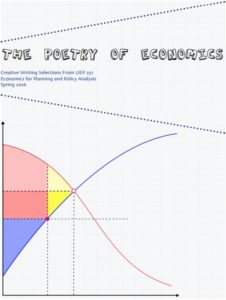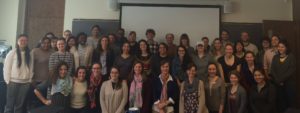Poetry may not improve everyone’s ability to learn economics, but it made class more enjoyable for some, according to findings from a recent UEP course.
Mary Davis, chair of UEP, injected rhyme and meter into the required Economics for Planning and Policy Analysis class as part of an experiment on the effects of poetry versus expository writing for learning economics.
“When you generate an idea by yourself, you’re going to be more likely to remember it,” Davis said, citing psychological research at a recent presentation of her findings.
From a group of almost 40 students, 45 percent said poetry improved their depth of understanding in economics, while 34 percent said essays would have helped them better understand economics. However, 70 percent said they would choose poetry over essay, 22.5 percent said they would choose essay, and 7.5 percent said they were indifferent.
The findings also were inconclusive on whether poetry improved students’ performance during tests because one of two randomized groups always scored higher whether it did exercises in poetry or prose.
While this learning style, using poems to express economic theories, may not be effective for all types of students, Davis noted that it is a contrast to the typical “chalk and talk” style used by economics instructors.
The traditional teaching style produces “economists that act and behave the same way. It excludes people who don’t learn that way,” she said. “If, after the semester, you liquidate your brain it doesn’t serve (its purpose).”
The goal was to boost economic literacy. The tool was the written word. The data were inconclusive but the results were lyrical and, at the very least, an update from the trite economic metaphor of guns and butter.
The anthology of poems and results from last semester’s study will be published on a future blog post. Please check back.


